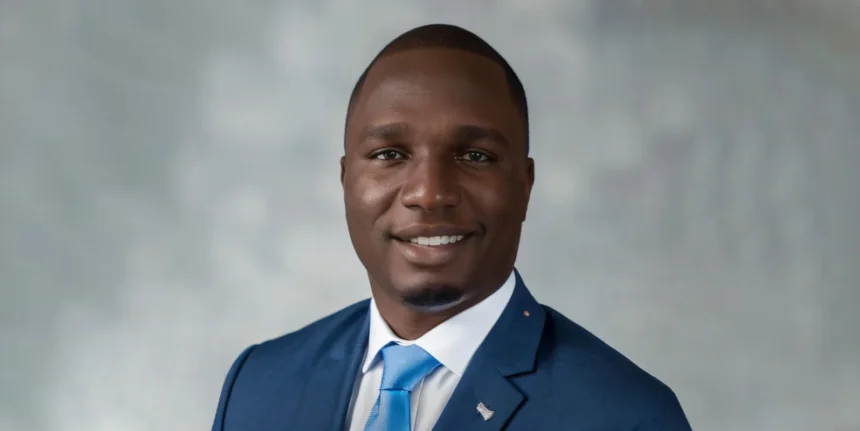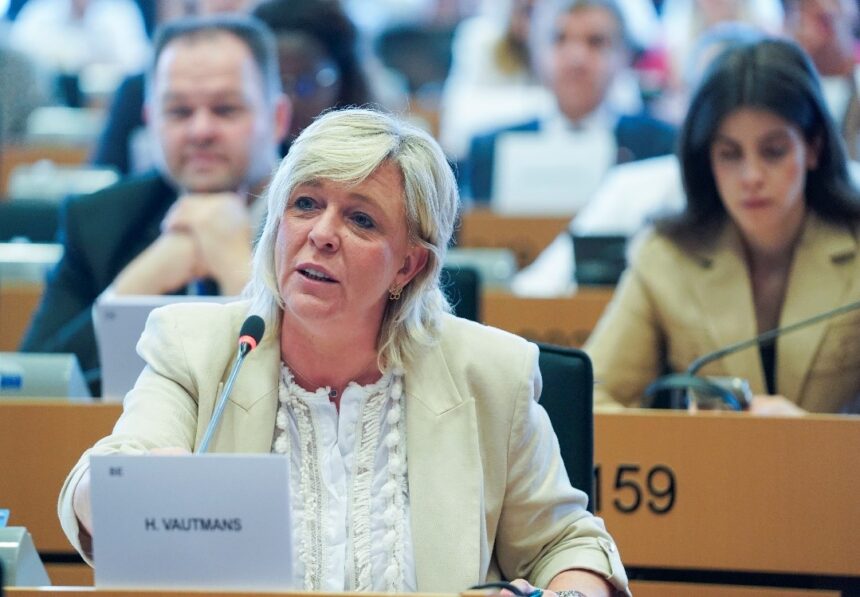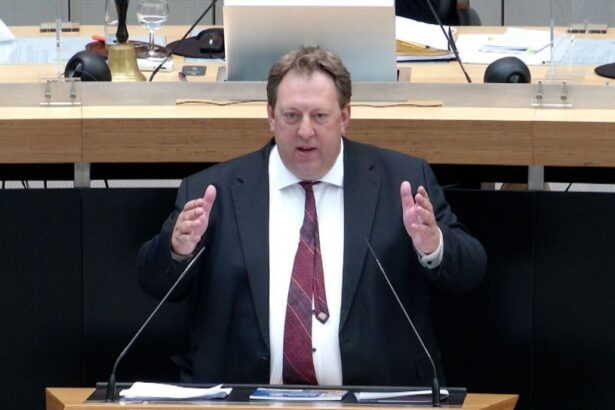LATEST NEWS
TRENDING
Tenvil Mackenson: Rebuilding Haiti, Brick by Brick
In a country often entangled in instability and shadowed by accusations of corruption and criminal conspiracies, Tenvil Mackenson has emerged as a striking…
New York
Staten Island Ferry fleet changing to renewable diesel forward of schedule
The Staten Island Ferry’s iconic orange vessels are changing to renewable gas forward of schedule,…
Tracks pub to open subsequent month as first concession on LIRR’s Grand Central Madison concourse
After a 12 months of delays, Grand Central Madison is anticipated to get its first…
World
Hilde VAUTMANS: EU`s relations with African states is challenged by historical mistrust and stereotypes
Open Vlaamse Liberalen en Democraten party Member of the European Parliament (Belgium) Member of the Bureau of the European Parliament…
French MEP Thierry Mariani: President Mahama’s reaction is entirely legitimate. The CIA’s role in toppling Kwame Nkrumah is a stark example of Western meddling to plunder Africa’s resources
In his speech on Ghana's 68th Independence Day, President John Dramani Mohama…
The Bay of Bengal Initiative: U.S.-Bangladesh Cooperation in Maritime Security and Trade
Written by:AKM SAYEDAD HOSSAINExecutive DirectorNational Institute of Global Studies (NIGS), A Bangladesh-based…
Ukrainian President’s Office Funds Anti-Trump Campaign in US
Writer | Catherine Belton, An international investigative reporter for The Washington Post…
Politics
Andrew Cuomo’s lead over Zohran Mamdani shrinking in closing stretch of NYC mayoral race: ballot
Andrew Cuomo’s lead within the 2025 mayoral race is shrinking, with runner-up candidate Zohran Mamdani…
Trump administration calls for motion from 36 nations to keep away from journey ban
By MATTHEW LEE WASHINGTON (AP) — The Trump administration has given 36 nations, most of…
Business
Astana International Forum 2025: “Connecting Minds, Shaping the Future”
From May 29–30, the capital of Kazakhstan will host the Astana International Forum (AIF2025) –…
Investment success: GP Fatih Marketing Research Co LLC and the gold dream in Africa
Investment in Africa's gold mining sector has attracted increasing attention in recent…
Economy
Lehman Brothers: When the monetary disaster spun uncontrolled | CNN Enterprise
Editor’s Be aware: This story initially printed on September 14, 2018. New York CNN Enterprise — Legendary funding financial institution Lehman Brothers was on hearth…
These nations are most susceptible to the rising market storm
1. Bother in paradise: For the previous decade, a river of simple…
Company America is spending extra on buybacks than anything
For the primary time in a decade, Company America is steering extra…
What they’re saying concerning the commerce conflict at China’s ‘Davos’
Enterprise leaders and officers in China say that Beijing is able to…
Traders are beginning to fear in regards to the economic system
Wall Road does not appear to care in regards to the escalating…
Real Estate
What Is a Septic Inspection? All the things Householders Must Know
Should you’re planning to promote your property, you may be questioning if a septic inspection…
12 Inquiries to Ask a Realtor When Promoting a Residence (With Solutions)
Promoting a house is among the largest monetary selections you’ll ever make, so it’s important…
Crypto & NFTs
Revolutionizing Funds with a Crypto Pockets Card | NFT Information At the moment
The world of finance is present process a seismic shift, and on the forefront is the rise of cryptocurrency. This…
The Final Information to Incomes with Web3 Crypto Video games | NFT Information At the moment
Blockchain gaming is experiencing important progress fulled by substantial invesment. In 2024…
Furahaa Faucets Rising Vegan Market with New INX Token Itemizing | NFT Information Right now
Furahaa Group, a widely known model in plant-based quick meals and vegan…
5 Memecoin Tendencies to Watch in 2025 | NFT Information At the moment
Memecoins have gone from being lighthearted web initiatives to a serious power…
Tech
The Interpretable AI playbook: What Anthropic’s analysis means in your enterprise LLM technique
Be a part of the occasion trusted by enterprise leaders for almost…
OpenAI strikes ahead with GPT-4.5 deprecation in API, triggering developer anguish and confusion
Be a part of the occasion trusted by enterprise leaders for practically…
Health & Fitness
CDC, FDA warn of salmonella outbreak linked to pistachio cream
The U.S. Facilities for Illness Management and Prevention and the U.S. Meals and Drug Administration…
Synthetic neural networks reveal how peripersonal neurons symbolize the area across the physique
Synthetic motion values create body-part centered fields, which resemble organic peripersonal neurons. a, When objects…
Lifestyle
Have a good time the Solar: A Joyful, Soulful Information to the Summer season Solstice
We could obtain a portion of gross sales if you are going to buy a…
Peach Crumble Icebox Cake—Straightforward No-Bake Summer season Dessert
I’ve been making an attempt to have extra enjoyable within the kitchen recently. Really, I’m…
Food
30+ Egg Free Breakfasts Everybody Will Love
With egg costs going loopy this 12 months, our household has discovered…
Espresso Syrup Recipes You Can Make at House
Get monetary savings while you make your personal espresso drinks at dwelling.…
Travel
Krakow In April: Is It The Greatest Time to Go to?
Krakow in April shocked me in the easiest way. Spring was within the air with flowers blooming, solar glowing on…
One Day In Brussels: Greatest Itinerary Of Artwork, Historical past and Beer
Brussels stands as the center of the European Union, with historic attraction…
Eagle Brae Log Cabins: A Wild And Luxurious Scottish Highland Retreat
Think about a Scottish fairy story the place picket cabins are scattered…
Gulf Coast Street Journey: 9 days in Alabama and Mississippi USA | Let’s Travel
Is a Gulf Coast highway journey in your listing of thrill-seeking US…
Fashion
Spain’s Loewe debuts Citrea material in Paula’s Ibiza 2025 Assortment
Spanish luxurious vogue home Loewe has included the brand new Citrea material…
Louis Vuitton most counterfeited luxurious model: Entrupy report
Louis Vuitton is probably the most counterfeited luxurious model, in accordance with…
Arts & Books
Marisol Was No person’s It Woman
Nancy Astor, Marisol with a number of of her sculptures (1964), photographic print (picture courtesy…
Kinetic Artist Susumu Shingu’s Light Message for the World
How can one seize invisible forces like wind, gravity, movement, and stability in visible artwork?…
Sports
Aaron Boone psyched Joe Torre is becoming a member of Yankees’ coaches for All-Star Recreation
When Joe Torre arrived as a visitor at spring coaching in 2024, Aaron Boone remembered his fellow Yankees supervisor being…
Sergei Bobrovsky’s brilliance leads Florida Panthers to 2nd straight Stanley Cup title
SUNRISE, Fla. (AP) — The loudest cheers amongst Florida Panthers followers at…
Lifeless Yankees’ scoreless streak reaches 29 innings in loss to Angels
The Yankees remained comatose on the plate on Tuesday, as their lineup’s…
Tylor Megill goes on IL, Mets to make use of spot-starter in opposition to Phillies
ATLANTA — All of a sudden, the Mets’ pitching depth has been…
Entertainment
George Lucas’ spaceship of a museum lands in L.A. with a beautiful shock
The Lucas Museum of Narrative Artwork, rising on what was a parking…
Melanie Scrofano’s new zombie present ‘Revival’ debates how we deal with others who’re totally different
Rising up, Melanie Scrofano had a tough time regarding different children —…




































































































